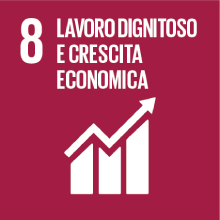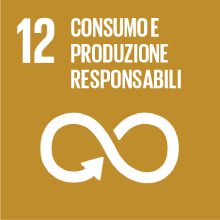INTRODUCTION TO DIGITAL AND PUBLIC HUMANITIES
- Anno accademico
- 2020/2021 Programmi anni precedenti
- Titolo corso in inglese
- INTRODUCTION TO DIGITAL AND PUBLIC HUMANITIES
- Codice insegnamento
- FM0482 (AF:335397 AR:175860)
- Lingua di insegnamento
- Inglese
- Modalità
- In presenza
- Crediti formativi universitari
- 6
- Livello laurea
- Laurea magistrale (DM270)
- Settore scientifico disciplinare
- L-FIL-LET/08
- Periodo
- 1° Periodo
- Anno corso
- 1
- Sede
- VENEZIA
- Spazio Moodle
- Link allo spazio del corso
Inquadramento dell'insegnamento nel percorso del corso di studio
The course will be taught by two professors: prof. Stefano Dall’Aglio for the part Introduction to Public Humanities and prof. Franz Fischer for the part Introduction to Digital Humanities.
Risultati di apprendimento attesi
• Knowledge of the evolution of the digital and public humanities from the origins up to the present time.
• General knowledge of the relevant theoretical and intellectual debate.
• General knowledge of the main techniques and methodologies.
2. Ability to apply knowledge and understanding:
• Ability to apply the methodologies of digital and public humanities to specific cases.
• Ability to solve the problems connected to the adoption of digital technologies or ‘public’ methodologies in relation to the humanistic disciplines.
3. Judgement skills:
• Ability to critically analyse a digital or public humanities source, document, or project.
• Ability to develop critical thinking skills with reference to digital technologies or ‘public’ methodologies.
4. Communication skills:
• Ability to interact with the peers and the professor and communicate the outcomes of the student’s work.
Prerequisiti
Contenuti
The Introduction to Digital Humanities will provide an overview of key aspects of the digital transformation of scholarly methods and practices in the humanities. Students will acquire a basic knowledge and understanding of the history of Digital Humanities as a discipline. Referring to a wide range of digital projects and scholarly resources participants will be introduced to past and current debates on theoretical issues and implications of applying digital tools and methodologies in literary, historic, artistic and cultural heritage research. Topics will include data models and standards; institutions, communities and infrastructures; collaboration, communication and participation; data visualisation and analysis; publication licences and open access.
Testi di riferimento
• Howard Zinn, ‘The Making of a Public Intellectual’, in Practicing Public Scholarship. Experiences and Possibilities beyond the Academy, ed. by Katharine Mitchell, Hoboke, NJ-Chichester, Wiley-Blackwell, 2008, pp. 138-141.
• Cameron Cartiere, ‘Coming in from the Cold: A Public Art History’, in The Practice of Public Art, ed. by Cameron Cartiere and Shelly Willis, New York and London, Routledge, 2008, pp. 7-17.
• Julie Ellison, ‘The New Public Humanists’, PMLA, 128. 2 (2013), pp. 289-298.
• David D. Cooper, ‘Can Civic Engagement Rescue the Humanities?’, in Learning in the Plural. Essays on the Humanities and Public Life, East Lansing, Michigan State University Press, 2014, pp. 151-165.
• Gabriel Moshenska, ‘Introduction: Public Archaeology as Practice and Scholarship where Archaeology meets the World’, in Key Concepts in Public Archaeology, ed. by Gabriel Moshenska, London, UCL Press, 2017, pp. 1-13.
• Thomas Cauvin, ‘The Rise of Public History: An International Perspective’, Historia Crítica, 68 (2018), pp. 3-26.
Only for non-attending students:
• Martha Nussbaum, 'Not for Profit. Why Democracy Needs the Humanities', Princeton, Princeton University Press, 2010.
All the articles and other didactic materials will be made available through the Moodle e-learning platform.
For introduction to Digital Humanities:
• Ted Underwood, ‘Why DH has no future’, Blog post on The Stone and the Shell, 2012. https://tedunderwood.com/2012/04/14/why-dh-has-no-future/
Five articles to be chosen among those in the following books:
• A companion to Digital Humanities, ed. by Susan Schreibman, Ray Siemens, and John Unsworth, Oxford: Blackwell, 2004. Online: http://www.digitalhumanities.org/companion/
• Defining Digital Humanities. A Reader, ed. by Melissa Terras, Julianne Nyhan and Edward Vanhoutte, Farnham: Ashgate, 2013. Online: http://ccftp.scu.edu.cn/Download/505594d1-330f-4831-94a1-ec87d218345a.pdf
• A New Companion to Digital Humanities, ed. by Susan Schreibman, Ray Siemens, and John Unsworth, Chichester: John Wiley & Sons, Ltd., 2016. Online: http://www.arise.mae.usp.br/wp-content/uploads/2018/03/A-New-Companion-to-Digital-Humanities.pdf
Modalità di verifica dell'apprendimento
1) Final oral exam.
2) Participation to class discussions.
3) Assignments and course activities (one of the assignments will be linked to the cycle of seminars of the Venice Centre for Digital and Public Humanities).
Attendance is strongly recommended.
Non-attending students need to prepare some additional reading. See the 'Referral text' section for the part Introduction to Public Humanities and contact prof. Fischer for the part Introduction to Digital Humanities.
Modalità di esame
Metodi didattici
Attendance is strongly recommended.
Whenever needed, the didactic material will be made available through the Moodle e-learning platform.
Altre informazioni
Accommodation and support services for students with disabilities and students with specific learning impairments:
Ca’ Foscari abides by Italian Law (Law 17/1999; Law 170/2010) regarding support services and accommodation available to students with disabilities. This includes students with mobility, visual, hearing and other disabilities (Law 17/1999), and specific learning impairments (Law 170/2010). If you have a disability or impairment that requires accommodations (i.e., alternate testing, readers, note takers or interpreters) please contact the Disability and Accessibility Offices in Student Services: disabilita@unive.it.
Obiettivi Agenda 2030 per lo sviluppo sostenibile
Questo insegnamento tratta argomenti connessi alla macroarea "Economia circolare, innovazione, lavoro" e concorre alla realizzazione dei relativi obiettivi ONU dell'Agenda 2030 per lo Sviluppo Sostenibile


